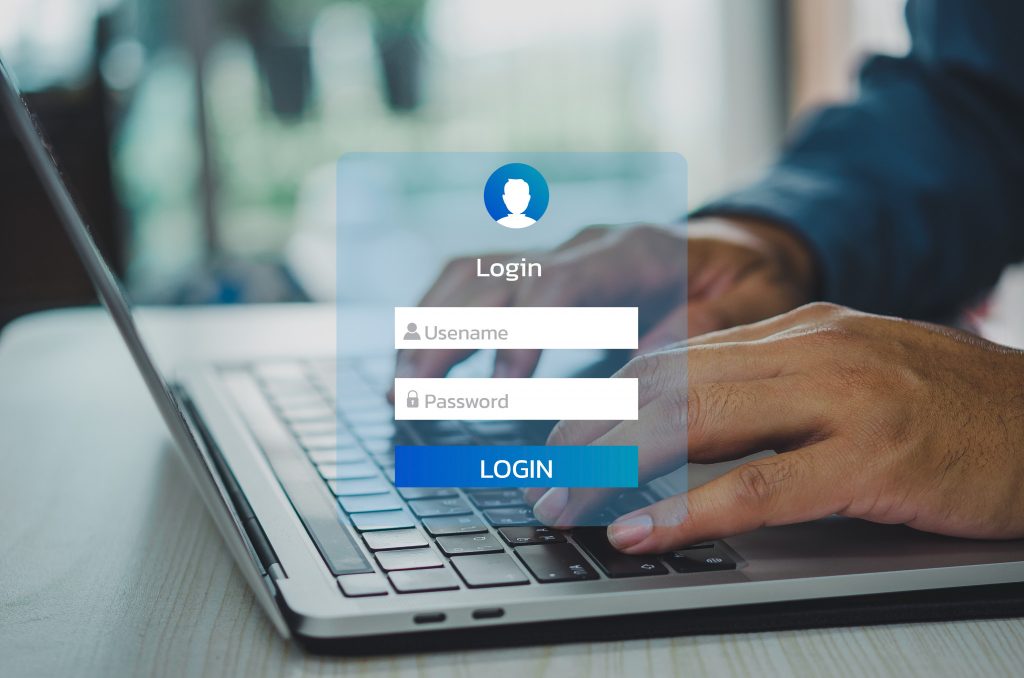Social media allows us to reconnect with old friends, stay informed about our favorite businesses and restaurants, and share our milestones with people with love. But sharing too much on social media can also make us susceptible to cybercrime, and cyber criminals are getting increasingly adept at gathering and stealing our personal data—even when we’re careful.
From advice on tax scams to phishing scams, we strive to provide our members with the know-how to keep their financial accounts safe. In this post, we’ll discuss how to protect your privacy on social media, from common sense suggestions to technological pointers. Keep reading to learn our top social media safety tips!
1. Skip the “About Me” Sections
Just because you can give the general public more information about yourself doesn’t mean you should. All social media platforms allow you to choose how many private details you share in your ‘About Me” or “Bio” section. For extra anonymity, leave these sections blank. Even seemingly harmless details—like your hometown or the number of children you have—can be used against you by crafty cybercriminals.

2. Review Your Privacy Settings
When you sign up for a new platform, your default privacy settings are usually set to the least-restrictive options that offer the most visibility for other users on the platform. Go into your account settings to adjust your privacy settings to ensure your posts and other content are only viewable to users you know. This simple practice can be one of the most effective techniques for staying safe on social media.
3. Enable Two-Factor Authentication
Many platforms are beginning to require two-factor or multifactor authentication (2FA/MFA)—using an additional device or method of communication to verify you are who you are when you log in. If you are given a choice, never decline this option. Every layer of security adds another obstacle against cybercriminal tactics, and 2FA is one of the most cutting-edge tools used to combat their methods.

4. Be Discreet About Your Location
Whether selling something on a local online marketplace or moving into a new home, you may be tempted to share specific details about your residence. However, your home address can be vital information—along with other personal details—to access your accounts or otherwise leave you susceptible to criminal activity. Never share specific details about where you live. The same logic goes for travel; avoid posting about any trips you take until after you return home, so fewer people know your home will be empty while you are away. When you post photos, turn off location tagging, so people in your larger social media circle don’t know your exact location.
5. Take a Closer Look at Photos You Post
Speaking of photos, be aware that your pictures can unintentionally contain a plethora of private and identifying information. Beyond your location information—from places you visit, to house numbers or street names—consider what aspects of your identity you are revealing through your photos. This could include information about your family and children, job, lifestyle, birthdays, hobbies and interests, and education information. In the wrong hands, these details could help someone verify your identity to access or open financial accounts, pose as someone you know, or otherwise groom you for a scam. Even if you use the strictest privacy settings and severely limit the number of friend or follow requests you accept, if a cybercriminal hacks a friend’s account, they will gain access to this information. It’s best to be cautious about the photos you post online.

6. Only “Friend” Who You Know
One of the common methods that hackers use to infiltrate private social circles to gain access to personal information is the “friend” or “follow” request. It’s important to keep your guard up and only accept friend requests from personal or business accounts you know and trust—in real life.
But that’s not enough. Even people you know may have their accounts hacked or duplicated. Double-check with every friend request that the person on the other side is actually someone you know. Check out their profile and ensure it is robust—with sufficient information, posts, and interactions with other friends—and not a quickly hobbled-together clone. Double-check that you aren’t already friends with them on the same platform. If you suspect a friend has been the victim of profile cloning, reach out to them using another method of communication.
7. Ask Not to Be Tracked
Smart devices often allow apps and web browsers to track your activity—by default. Suppose the wrong person has access to data collected via these tracking mechanisms. In that case, you could leave your financial accounts susceptible to hackers who can drain your savings or even open new accounts in your name. Decline or toggle off all activity tracking in your phone, computer, and app settings. If an app asks you to allow activity tracking, always say no.

8. Always Log Out
With facial recognition, password managers, and 2FA, quickly and securely logging into your accounts on your personal devices has never been easier. Logging out of social media accounts at the end of your session can ensure that even if your phone or computer is lost or stolen, no one has easy access to your accounts.
9. Keep Software and Browsers Up-to-Date
It’s easy to decline updates—especially if they are suggested at inopportune times. But updates keep your technology safe from the latest malware and are essential to protecting the accounts you access on your device. Make sure only to use the most up-to-date versions of computer software and browsers and allow automatic security updates on your devices. Lastly, when your device is so old it’s no longer supported by its manufacturer or other software companies, it’s time to upgrade.

10. Use a VPN as Often as Possible
A VPN is not just another layer of online security—it could be the one thing protecting your device and your accounts from cybercriminals. VPNs encrypt all your activity, from entering passwords and credit card information to accessing your credit union online banking portal or social media accounts. Whenever you use public Wi-Fi—whether at school, a cafe, or even at an airport—use a VPN to safeguard your activity.
Bank Securely Online with SkyOne
Beyond exercising caution and keeping your devices secure to ensure your safety on social media, an important aspect of safeguarding your financial accounts is ensuring that your bank or credit union utilizes the most robust protections available. With SkyOne Online and Mobile Banking, rest assured that your accounts are protected. We use cutting-edge technology, including two-factor authentication and encryption, to help keep your assets safe from cybercriminals. And online banking isn’t just secure—it’s also convenient. Manage your direct deposits, check your account balances, and even pay your bills quickly and easily on the go, using your computer or mobile device.
We’re proud to be one of California’s most trusted credit unions for online banking. Contact us to learn more about our digital banking options, or register for Online and Mobile Banking today!
2 Comments
Comments are closed.


I pretty much think it is one of the best. However seems to drop my password everytime the app is up dated . I am not sure why and maybe I should keep using
With password etc better . It’s almost like it updates that part which in fine ! I can not walk and a call and they help me very well and fast if I can keep up lol. It’s the best the keep ups with my moment better than me
. Cheers thank you for all you do!
The best for me so far